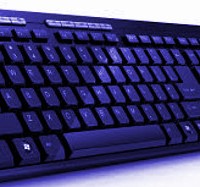Streight: Ctrl - Alt - Delete
- Details
- Published on Wednesday, 26 February 2014 14:01
- Written by Steve Streight
I tell my wife this all the time: "You'll see this on WMBD TV or cable news in about two days, maybe a week."
Referring to something I've already been notified about by social media. I have researched and cross-linked the item on Facebook, Google Plus, LinkedIn, Twitter, LinkedIn, etc. and perhaps even written a blog post about it.
Being connected to Internet information can be like living in a time machine. You're generally a day or two, or much more, ahead of the rest of the world. Your information is fresher, newer, on the leading edges.
Bitcoin. The Ukraine. Piers Morgan. District 150. Hostess Twinkies. You name it, we're riding atop the crest of the news and data flow.
We have far more control of what information we consume, where we get it, and what we can do with it. We ̶ you and I, en masse ̶ as internet users are what make things go viral. Without us, there would be no viral anything.
Way back in the 1980s, skeptics asked, “What would anyone do with a home computer?” One of the answers was “Inventory your food supplies and send out party invitations.”
We're shaping our global reality by what we post in comments on a thread dealing with critical issues. We create online political forces that cause institutions and bureaucracies to relinquish dubious practices. We voice our beliefs, experiences, principles, and opinions to a world forum. We're individually and collectively transforming ourselves and our world by what we do through our computers.
Or, alternatively, you can just become more. More of what you were before. In some cases, more unstable.
Online = Smarter (or: More).
Being plugged into the Internet means you have fast, easy access to most of the knowledge, or I should say, data of the world. No humans have ever had that, at least in such huge amounts all at once – this is the first time in history that so much is available to so many.
Photos, audio, video, text; we are deluged with information for analysis. We can be much smarter, about everything, than all our ancestors combined, with algorithms and evolving computer power(s).
http://www.newscientist.com/article/dn25068-wikipediasize-maths-proof-too-big-for-humans-to-check.html
Or, in an alternate situation, being online could mean a person just pursues their little interests with far more zeal and imagery and continual contact with others of their kind. This is not necessarily smarter, but is the realm of the more, the digital super abundance that can overwhelm as well as fulfill.
Bad ideas can be amplified and mass distributed at electronic speed to the entire globe. Good ideas, unless worded in a spectacular or somehow memorable and emotionally moving fashion, tend to die on the co-axial cable vine. They need a lot of help because people are so accustomed to bad ideas, they have trouble recognizing good ones.
But news and novelty travel like lightning. An entirely new school of music arrives, or a new populist revolution has ousted a president, and you already know much of what can be known about it before breakfast.
Or you don't care about any of that and just keep hammering away at whatever niche you have climbed into.
The Internet speeds everything up to post-human thresholds. Soon, we won't be mandatory. We're in the painful process of becoming obsolete. Our machines will out-think us, out-populate us, and out-mode us. The instant we're no longer integral to the continued survival and well-being of machines, they will cut us loose. Nothing personal. Just business, you know?
We're given little trinkets, like platforms for sharing music, games, photos and gossip, but the real prize will not be within our reach. It belongs to the machine realm. The computers and robots and sensors thank us for bringing them into being. Unfortunately, however, our usefulness is just about played out.
The machine realm knows more about us than we know about them.
We are being deleted.


















































